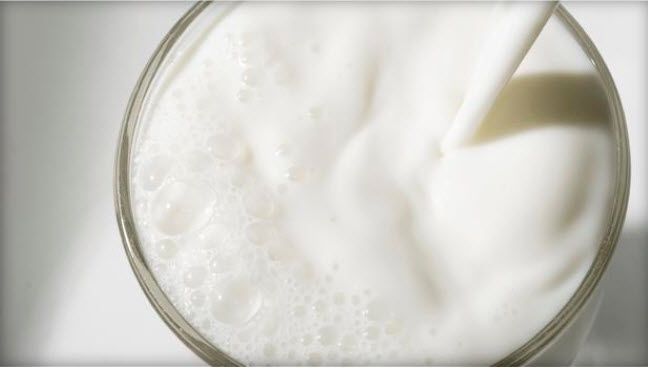Are Full-Fat Dairy Foods Better For You After All?

Can we go back to putting whole milk in our coffee and slurping down real ice cream? Two recent studies suggest eating full-fat dairy foods instead of their thinner tasting, low-fat or non-fat counterparts may help cut the risk for diabetes and obesity. But the research is still early, experts told CBS News.
Tufts researchers report in the journal Circulation that people who consumed full-fat dairy products had as much as a 46 percent lower risk of developing diabetes over the course of the 15-year study compared with people who opted for skim milk, low-fat yogurt and low-fat cheese. The research was based on an analysis of blood test results showing biomarkers of full-fat dairy consumption.
A second study of more than 18,000 middle-age women who were part of the Women’s Health Study — and normal weight, free of cardiovascular disease, cancer, and diabetes at the start of the research — found that those who ate more high-fat dairy had an 8 percent lower chance of going on to become obese over time compared to those who ate less. No association was observed with low-fat dairy product intake.
“We saw less weight gain for higher total dairy and high-fat dairy intake and also a lower risk of becoming overweight and obese in those who consumed more high-fat dairy,” said study author Susanne Rautiainen, a research fellow at Brigham and Women’s Hospital and Harvard Medical School in Boston.
The U.S. Dietary Guidelines recommend keeping saturated fat consumption to less than 10 percent of calories per day. A latte made with one cup of whole milk, for example, contains 4.6 grams of saturated fat — almost a quarter of the daily total.
Changing the dietary guidelines might be premature at this point, but they should be re-evaluated, nutrition experts said.
“I am conservative about setting national dietary guidelines. While evidence remains insufficient to definitively recommend only whole-fat dairy, it certainly is robust enough not to recommend only low-fat dairy,” said Dr. Dariush Mozaffarian, Dean of Tufts Friedman School of Nutrition Science & Policy, and Editor-in-Chief of the Tufts Health & Nutrition Letter.
Mozaffarian, the author of the diabetes and dairy study, told CBS, “Our findings suggest that national guidelines that focus only on low-fat dairy should be re-examined, allowing flexibility for individual consumers to select either whole or reduced fat milk, cheese, and yogurt.”
Dr. Susan Spratt, a diabetes specialist at Duke, told CBS News it’s an interesting study and adds to previous, conflicting findings on diet and health.
Read more here